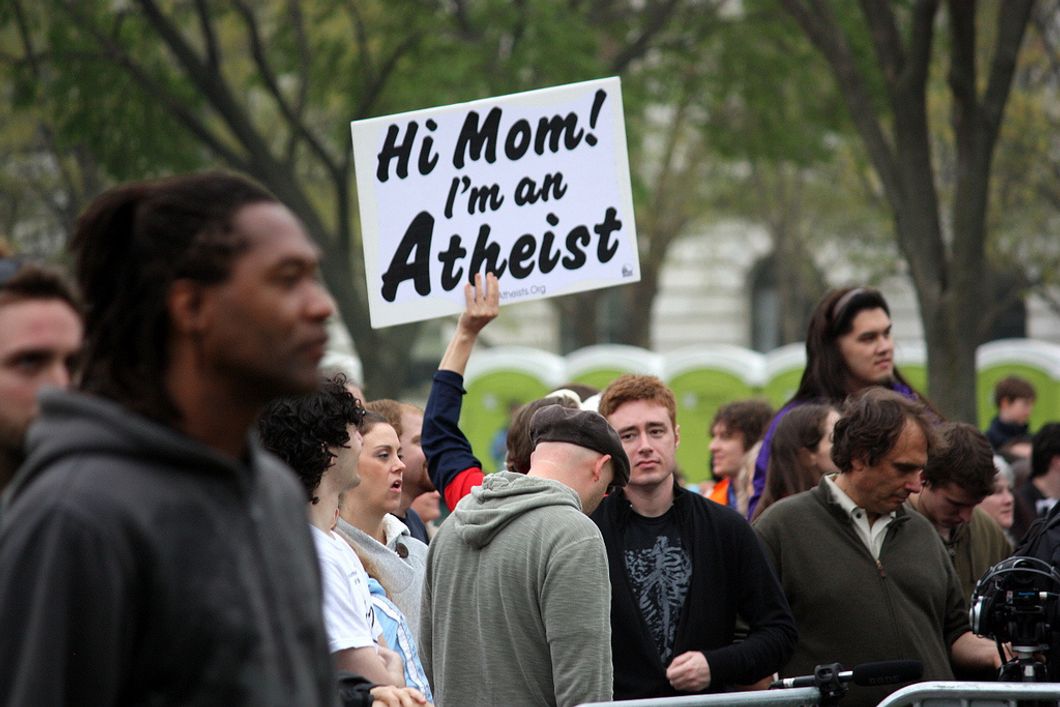Madalyn Murray O'Hair, the founder of the American Atheists organization, once called atheists the "last minority." To me, it is incredibly easy to understand what she means. Long after African-Americans, gays, and other minority groups have been largely accepted into society, atheists are still incredibly distrusted in general society. In fact, atheists continue to be the only group that it is socially acceptable to discriminate against, and worse yet, this makes so many atheists reluctant to even consider admitting their true beliefs.
Atheists are still incredibly discriminated against in society. When I first tell people this, they usually scoff at the idea that atheists can even be a minority. Additionally, people find it perplexing at the idea that atheists are even discriminated against, to begin with. I find that there are multiple reasons for this. For one, atheists are an "invisible minority." By this, I mean that, unless someone asks, they will not immediately know your religious beliefs. Unlike the color of someone's skin or the gender of the person that someone is marrying, religious beliefs happen at a mental level and someone has to actually communicate those beliefs to another person. This makes people less aware of the number of atheists there actually are in society, and so it begins to seem like a group that, relatively, does not matter. In addition, because of societal stigmas against the word "atheism," people that really are atheists shield themselves with titles like "agnostic," "spiritual," and "secular." This spreads out understanding of the movement and helps to reinforce the stereotype that atheist is a dirty word. Atheism simply means the lack of belief in God. No matter what title you choose, if you do not believe in God, you are an atheist. Accept and embrace that title.
Another issue is that people do not realize how atheists are discriminated against. There is a societal standard that deems that religiosity is not only expected but admirable. People think that the religious are superior morally and that the non-religious are lacking a fundamental part of them. Because of the nature of atheism, discrimination does not happen in the same sense that it happened to African-Americans. Rather, the main form of discrimination comes from micro-aggressions that most people do not even realize they are making. This would include things like encouraging a room to pray without considering those that do not believe in God or asking someone what church they go to when first meeting them. These practices reinforce the idea that religion is normal and non-religion is abnormal. Because people don't physically see this discrimination because no voices arise to call attention to it, this discrimination persists.
The only path forward is for more and more atheists to come out of the closet, embrace the title, and let the world know that we are here. Just like with the LGBT community, once people realize how prevalent we are, the stigmas begin to break down. Atheists make up a larger percentage of the U.S. population that Jews and other groups with intense lobbying power, and yet we have no openly atheist representative in Congress or in any high government office. When we begin to speak up, we can proudly tell people that we are here, we have issues, and we are everywhere. Atheists may be the last minority, but with continued perseverance, we can become a minority no longer.

















